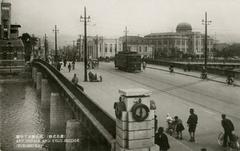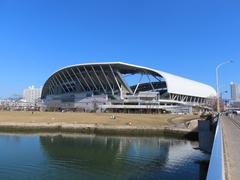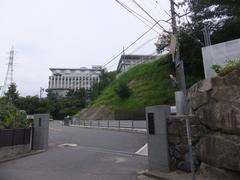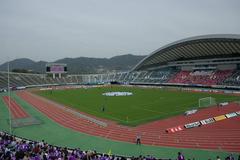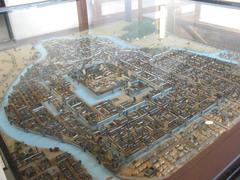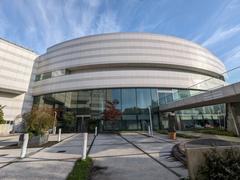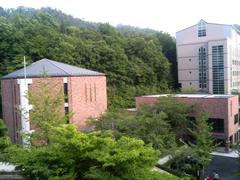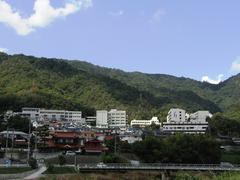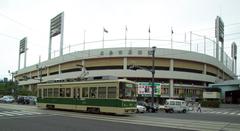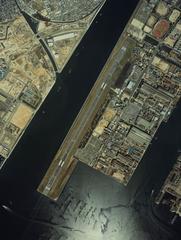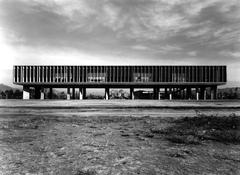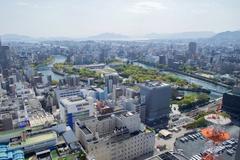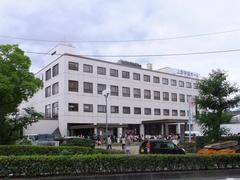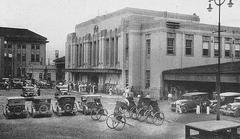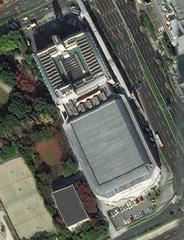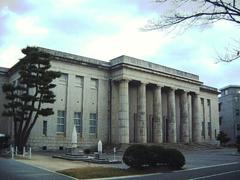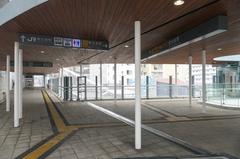Elisabeth University of Music Hiroshima: Visiting Hours, Tickets, and Visitor Guide
Date: 14/06/2025
Introduction
Nestled in the dynamic city of Hiroshima, the Elisabeth University of Music (EUM) stands as a beacon of academic excellence, cultural heritage, and peace advocacy. Established in the aftermath of World War II, EUM is more than a premier music institution; it is a testament to resilience, international harmony, and the transformative power of music. Founded by Belgian Jesuit priest Ernesto Gosensu in 1946 and later named in honor of Queen Elisabeth of Belgium, the university uniquely blends Western and Japanese musical traditions, underpinned by Hiroshima’s enduring commitment to peace and cultural renewal (Elisabeth University of Music Official Website; Wikipedia).
EUM welcomes visitors to its historic campus, featuring state-of-the-art venues like the Cecilia Concert Hall and Xavier Recital Hall. Visitors can attend public performances, tours, and engage with the university’s vibrant community, all while enjoying easy access to Hiroshima’s most significant historical sites, such as Peace Memorial Park, Shukkeien Garden, and Hiroshima Castle (Dive! Hiroshima Official Guide; Educativ.net). EUM’s role in fostering cross-cultural dialogue and peace education through music makes it an essential destination for music lovers, cultural explorers, and prospective students.
Contents
- Introduction
- Historical Overview
- Visiting Hours, Tickets, and Tours
- Access and Transportation
- Nearby Attractions
- Special Events and Cultural Activities
- Campus Features and Facilities
- Accessibility and Visitor Services
- Practical Tips for Visitors
- Frequently Asked Questions (FAQ)
- Conclusion
- Further Reading and Official Sources
Historical Overview
Elisabeth University of Music was established in 1946 by Belgian Jesuit priest Ernesto Gosensu to support Hiroshima’s postwar recovery through music education. Officially chartered in 1963, the university honors Queen Elisabeth of Belgium, a symbol of humanitarianism and cultural patronage. The institution’s mission is deeply rooted in the principles of peace, resilience, and international understanding, reflecting Hiroshima’s identity as the “City of Peace.” The fusion of Western and Japanese music traditions at EUM underscores its global outlook and dedication to cultural enrichment (Elisabeth University of Music).
Visiting Elisabeth University of Music: Hours, Tickets, and Tours
Visiting Hours
- Regular Campus Hours: Monday–Friday, 9:00 AM–5:00 PM.
- Event Hours: Concerts and recitals may be held outside regular hours; check the events calendar for specifics.
- Note: Campus access for general tours is limited. Entry to buildings is typically during scheduled events or by appointment.
Tickets and Admission
- General Admission: No fee to tour outdoor areas; admission to concerts and some facilities may require a ticket.
- Ticket Purchase: Available via the official website, at the box office, or at the venue on event days.
- Event Costs: Some events are free; others have nominal fees depending on the performance.
Guided Tours
- Availability: Guided tours can be arranged for prospective students and groups by appointment through the university’s administration.
- Content: Tours cover the campus, performance venues, and the university’s unique history and mission.
Accessibility
- Wheelchair Access: Ramps, elevators, and accessible seating are provided.
- Assistance: Notify the university in advance for special needs.
(Master’s Degree Program Guide)
Access and Transportation
- By Tram: Take the Hiroshima Electric Railway (Hiroden) to Kamiyacho-nishi Station; 10-minute walk to campus.
- By Train: From Hiroshima Station, transfer to tram or bus.
- By Bus: Several city lines serve the area.
- By Car: Limited parking; public transportation is recommended.
(Dive! Hiroshima Official Guide; Educativ.net)
Nearby Attractions
- Hiroshima Peace Memorial Park and Museum: A powerful site of remembrance and peace (Hiroshima Peace Memorial Museum).
- Shukkeien Garden: A traditional Japanese landscape garden.
- Hiroshima Castle: Historical landmark reflecting the city’s feudal past.
- Hiroshima Museum of Art: Showcasing Japanese and European works.
EUM’s central location allows visitors to combine cultural, historical, and artistic experiences in one trip.
Special Events and Cultural Activities
The university hosts a rich calendar of musical performances:
- Concerts & Recitals: Regularly scheduled, featuring students, faculty, and international artists.
- Workshops & Seminars: Covering both Western and Japanese music traditions.
- Annual Commemorative Concerts: Held around August 6th to honor Hiroshima’s history and promote peace.
Event schedules are published on the university’s official calendar.
Campus Features and Facilities
Performance Venues
- Cecilia Concert Hall: Seats 726; used for major performances and ceremonies.
- Xavier Recital Hall: Seats 190; ideal for chamber music and recitals.
Practice and Academic Facilities
- Rehearsal Rooms: Soundproof and equipped with quality instruments.
- Studios: For composition, recording, and digital music production.
- Library: Extensive collection of music scores, recordings, and research materials (Educativ.net).
Community and Atmosphere
- Student Body: Around 282 students, including international scholars.
- Faculty: Approximately 135 members, many with global experience (iaju.org).
- Atmosphere: Supportive, creative, and globally engaged.
Accessibility and Visitor Services
- Language Support: English-speaking staff and resources for international guests.
- Visitor Amenities: Nearby cafes, restaurants, and accommodations.
- Photography: Permitted in most public spaces; check specific event policies.
Practical Tips for Visitors
- Check Event Schedules: Always consult the official website for current information.
- Dress Code: Modest attire is appreciated, especially for concerts and religious spaces.
- Public Transit: Hiroshima’s tram and bus system is efficient and convenient.
- Safety: Hiroshima is a safe city; general precautions apply (travellersworldwide.com).
Frequently Asked Questions (FAQ)
Q: Can I visit the campus without attending an event?
A: Casual visits are limited. Public access is primarily during concerts, events, or by prior arrangement.
Q: Are concerts open to non-students?
A: Yes. Many events are public, with tickets available online or at the door.
Q: Is the campus accessible for visitors with disabilities?
A: Yes. Contact the university in advance for any special requirements.
Q: Are guided tours regularly available?
A: Tours are generally by appointment, especially for prospective students and groups.
Q: What are other nearby attractions?
A: Peace Memorial Park, Shukkeien Garden, Hiroshima Castle, and Hiroshima Museum of Art are within easy reach.
Conclusion
Elisabeth University of Music exemplifies Hiroshima’s spirit of peace, cultural renewal, and artistic excellence. Its accessible campus, world-class performance spaces, and frequent public events invite visitors to experience the city’s musical and humanitarian legacy firsthand. Whether you are attending a concert, exploring the university as a prospective student, or seeking connections to Hiroshima’s historical sites, EUM offers a profoundly enriching experience.
For the latest information on events, tours, and visitor services, visit the official website. To explore further, download the Audiala app for guided audio tours and cultural resources across Hiroshima and Japan.
Further Reading and Official Resources
- Elisabeth University of Music Official Website
- Elisabeth University of Music Wikipedia
- Dive! Hiroshima Official Guide
- Educativ.net: Elisabeth University of Music Profile
- Master’s Degree Program Guide
- IAJU: Elisabeth University of Music, Hiroshima
- Hiroshima Peace Memorial Museum
Explore the harmonious legacy of Elisabeth University of Music—where music, culture, and peace converge in the heart of Hiroshima.
